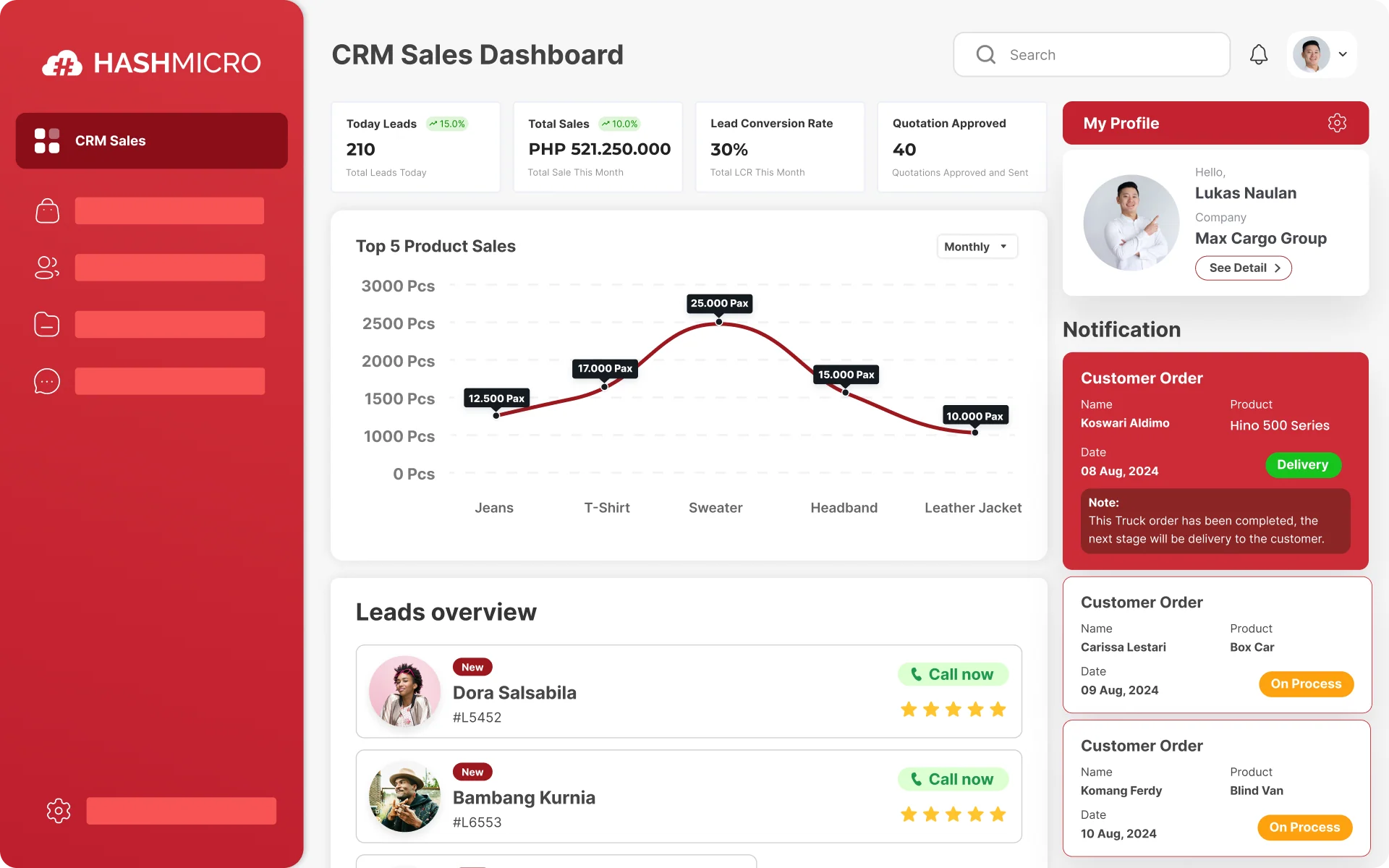It’s crucial for businesses to streamline their sales processes, improve efficiency, and drive revenue growth. The ERP Sales Module offers a powerful solution to achieve these goals.
By leveraging the ERP Sales Module, you can optimize your sales operations and position your business for success in the Philippines.
This article will provide valuable insights to help you make informed decisions and drive business growth. Let’s dive in and discover the power of the ERP Sales Module for Philippine businesses.
Table of Contents
Understanding the Role of ERP Sales Module in Enhancing Business Operations
In this section, we will delve into the role of the ERP Sales Module in enhancing business operations. The ERP Sales Module plays a crucial role in helping businesses manage their sales and marketing activities effectively.
It provides a comprehensive solution that integrates seamlessly with other modules in the ERP system, such as accounts receivable, accounts payable, general ledger, inventory control, and customer relationship management.
By understanding the role of the ERP Sales Module, businesses in the Philippines can optimize their operations, streamline processes, and improve sales management performance. With its extensive functionalities and integration capabilities, the module becomes a powerful tool for enhancing business operations and achieving sustainable growth.
Key Features of the ERP Sales Module
In this section, we will provide a comprehensive overview of the capabilities of the ERP Sales Module. The module plays a crucial role in streamlining sales processes and improving overall efficiency for businesses in the Philippines.
The ERP Sales Module offers a range of key features that empower businesses to effectively manage their sales processes and make informed decisions for revenue growth:
- Lead Generation Automation: The module automates lead generation, allowing businesses to efficiently capture and convert potential customers into sales opportunities.
- Customer Database Management: It enables businesses to maintain a centralized customer database, providing easy access to customer information and enabling personalized sales interactions.
- Sales Order Tracking: The module tracks sales orders from creation to fulfillment, ensuring efficient order processing and timely delivery to customers.
- Invoice Generation: It generates invoices automatically, eliminating manual invoicing and reducing the risk of errors, thereby improving accounting accuracy.
- Real-Time Sales Analytics: The module provides real-time sales analytics and reports, enabling businesses to monitor sales performance, identify trends, and make data-driven decisions.
These key features of the ERP Sales Module streamline sales processes, enhance efficiency, and enable businesses to deliver exceptional customer experiences, ultimately driving revenue growth.

Benefits of Implementing the ERP Sales Module
Implementing the ERP Sales Module in your Philippine business can bring numerous benefits and streamline your sales operations. Let’s explore some of the key advantages:
Streamlined Database Organization
The ERP Sales Module ensures efficient and organized database management, allowing easy access to customer and product data. With centralized information, you can retrieve relevant details quickly, improving response times and enhancing customer satisfaction.
Accurate and Error-Free Sales Forecasting
The ERP Sales Module provides robust forecasting capabilities, enabling you to make informed decisions and optimize your revenue strategies. By analyzing historical data and market trends, the module generates accurate sales forecasts, helping you anticipate demand, plan inventory, and minimize stockouts.
Boosted Sales Team Performance and Productivity
Implementing the ERP Sales Module empowers your sales team with valuable tools and functionalities. They can efficiently manage leads, track opportunities, and automate sales processes.
This allows businesses to focus on building customer relationships and closing deals, as well as boost in performance and productivity can significantly impact your sales revenue.
Improved Internal Cooperation among Teams
Through integrated real-time data, teams can align their efforts, share information, and work together towards achieving common goals.This improved internal cooperation enhances overall efficiency and customer satisfaction.
Structured Sales Process for Optimal Results
From lead generation and opportunity tracking to quote management and order fulfillment, the module guides your team through each step, ensuring nothing falls through the cracks. This structure improves efficiency, reduces errors, and increases the chances of converting leads into customers.
Get the pricing scheme below as a first step to experiencing the benefits offered by an ERP system.

Integration with Other ERP System Modules
The ERP Sales Module seamlessly interacts with other essential modules, such as accounts receivable, accounts payable, general ledger, inventory control, and customer relationship management.
This integration ensures smooth information flow and enables businesses to make data-driven decisions across various departments.
By linking the ERP Sales Module with accounts payable, businesses can effectively track and manage their financial transactions. The integration with general ledger ensures accuracy in financial reporting and analysis.
Furthermore, the integration with inventory control enables real-time tracking of product availability, ensuring timely order fulfillment and minimizing stock-out situations.
The connection with customer relationship management facilitates the consolidation of customer data, providing a holistic view of customer interactions and improving sales and marketing efforts.
By understanding the integration capabilities of the ERP Sales Module, businesses can effectively leverage its functionalities and maximize the benefits of their ERP system.
The seamless flow of information between modules empowers businesses to streamline their operations, enhance decision-making, and ultimately drive growth and success in the Philippine market.
Sales Order Management within ERP
Sales order management is a fundamental aspect of business operations, as it ensures the proper handling of customer requirements and the initiation of the order fulfillment process.
A sales order represents an agreement between a customer and a business for the purchase of products or services. It captures vital information such as customer details, product specifics, pricing, terms, and delivery instructions.
By accurately managing sales orders, businesses can streamline their operations, enhance customer satisfaction, and ensure timely and accurate order processing.
The standard sales order format consists of various components that provide essential information for both the business and the customer. These components typically include:
- Customer information: Name, contact details, billing address, and shipping address.
- Product details: Description, quantity, SKU, and any applicable discounts or promotions.
- Pricing: Unit price, subtotal, taxes, and total amount due.
- Terms: Payment terms, credit limits, and any special instructions.
- Delivery instructions: Preferred shipping method, delivery date, and any specific requirements.
Efficient sales order management involves a well-defined process that ensures seamless order processing, from order placement to order fulfillment. While the exact steps may vary depending on the business, the general process typically includes:
- Order placement: The customer submits the order, either through an online platform, email, phone call, or in-person.
- Sales order creation: The business generates a sales order document, capturing all relevant details discussed earlier.
- Order confirmation: The business verifies the order details, conducts any necessary checks, and confirms the order with the customer.
- Order fulfillment: The business prepares the products or services for delivery, ensuring they meet the customer’s requirements.
- Shipping and delivery: The business arranges for the shipment of the products or services to the customer, following the specified delivery instructions.
- Order completion and invoicing: The business marks the order as fulfilled, issues an invoice to the customer, and updates relevant records in the ERP system.
- Order tracking and customer communication: The business tracks the order’s progress, provides regular updates to the customer, and addresses any inquiries or concerns.
- Order reconciliation and reporting: The business reconciles the order with the customer’s payment, updates financial records, and generates reports for analysis and decision-making.
By visualizing the sales order management process using an ERP Sales Module flowchart, businesses can understand the sequential flow of activities and the critical role that the module plays in streamlining the process.
The ERP Sales Module enables businesses to create, track, and manage sales orders efficiently, ensuring accurate and timely order processing.
Advanced Features and Process Enhancements
The advanced features of the ERP Sales Module enable businesses to optimize their sales processes, streamline workflows, and make data-driven decisions for sales growth and profitability.
- User Database Management: The ERP Sales Module offers powerful user database management capabilities, allowing businesses to efficiently organize and access customer information.
- Quotation Generation: With the ERP Sales Module, businesses can easily generate accurate and professional quotations, enhancing the sales process and improving customer satisfaction.
- Credit Limitations: The module provides the ability to set credit limitations for customers, ensuring that sales orders are aligned with the company’s credit policies and minimizing credit risks.
- Multi-Layered Sales Orders: Businesses can create complex, multi-layered sales orders within the ERP Sales Module, enabling them to handle intricate sales scenarios and optimize order fulfillment processes.
- Sales Forecasting: The ERP Sales Module offers robust sales forecasting capabilities, providing businesses with accurate insights into future sales trends, enabling them to plan and allocate resources effectively.
- Backlog Management: This feature allows businesses to manage and prioritize backlogged orders in the sales process, ensuring timely order fulfillment and customer satisfaction.
- Sales Region Tracking: This module enables businesses to track sales performance based on different geographic regions, allowing them to identify high-potential markets and allocate resources accordingly.
- Return Material Authorization: Businesses can efficiently handle return requests and streamline the return material authorization process within the ERP Sales Module, enhancing customer service and ensuring prompt resolution of return issues.
By leveraging these advanced features, businesses can enhance their sales processes, streamline workflows, and make informed decisions for sales growth and profitability.
Conclusion
In conclusion, leveraging the ERP Sales Module is crucial for business growth and success in the Philippines. Throughout this guide, we have highlighted the key functionalities, benefits, and integration capabilities of the module.
By implementing the ERP Sales Module, businesses can streamline their sales processes, improve efficiency, and boost sales performance. The module enables businesses to enhance internal cooperation among teams and make data-driven decisions for optimal results.
With HashMicro ERP Sales Module, Philippine businesses can effectively manage sales CRM and marketing activities, automate lead generation, track sales orders, generate invoices, and gain valuable insights through real-time analytics.
Try the free demo now!

Frequently Asked Questions (FAQs)
Here, we address some of the common questions about ERP Sales Modules to provide a comprehensive understanding of their functionalities, benefits, implementation, integration, and best practices.
What are ERP Sales Modules?
ERP Sales Modules are software components that facilitate and automate sales processes within an enterprise resource planning (ERP) system. They streamline sales activities, from lead management to sales forecasting, helping businesses optimize their revenue generation efforts and achieve sales growth.
What are the benefits of implementing ERP Sales Modules?
Implementing ERP Sales Modules offers several benefits for businesses. These modules enable efficient management of customer and product databases, provide accurate sales forecasting for informed decision-making, boost sales team productivity, improve interdepartmental cooperation, and structure the sales process for optimal results. By leveraging ERP Sales Modules, businesses can enhance their sales operations and drive growth and success.
How do ERP Sales Modules integrate with other system modules?
ERP Sales Modules seamlessly integrate with other modules in the ERP system, such as accounts receivable, accounts payable, general ledger, inventory control, and customer relationship management. This integration ensures efficient data exchange and coordination between different facets of business operations, enabling businesses to leverage the full functionality of their ERP system and streamline their overall processes.
What factors should be considered during the implementation of ERP Sales Modules?
During the implementation of ERP Sales Modules, it is crucial to consider factors such as detailed requirements analysis, customization options, data migration, user training, post-implementation support, and system scalability. By carefully addressing these factors, businesses can ensure a smooth and successful implementation process, maximizing the benefits of the ERP Sales Modules.














































